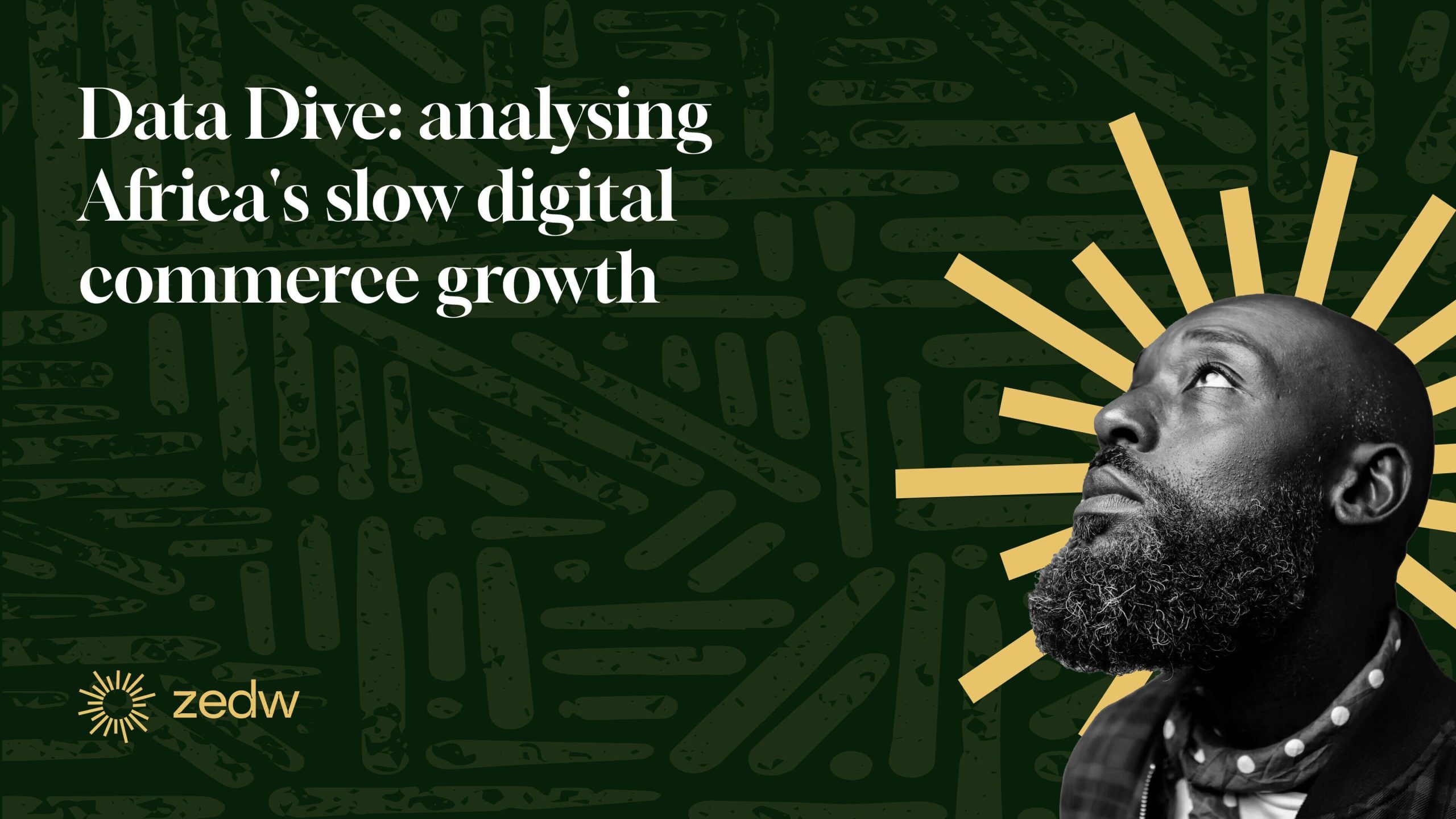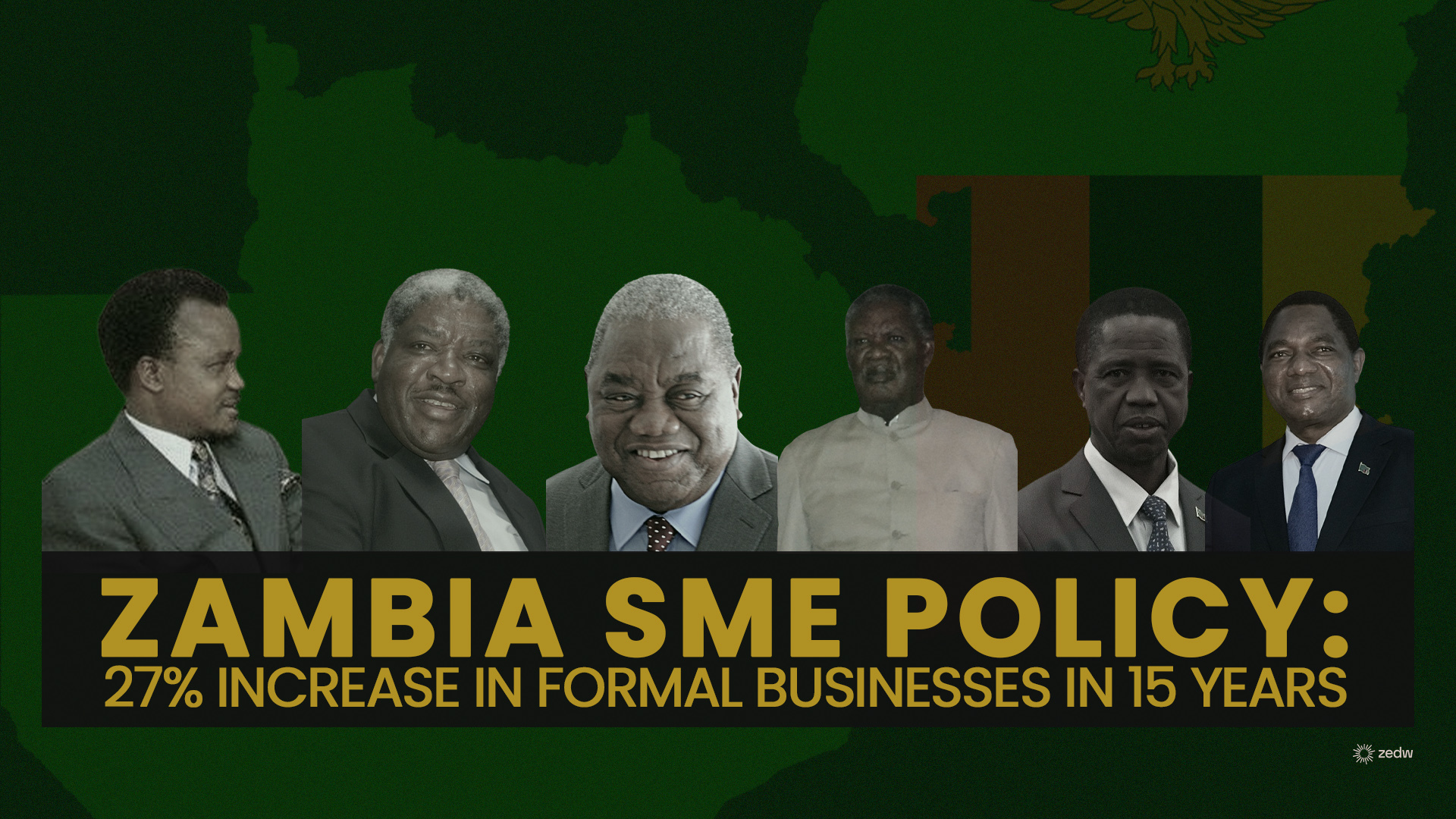The potential of Zimbabwe being an innovation exporter is dwindling because the country’s startup ecosystem is moving elsewhere…
“We must cultivate our garden” was written centuries ago by Voltaire in his book Candide and, for whatever reason, resonated with Trevor Ncube’s recently concluded Ideas Festival. If, for some reason, you haven’t read the book I urge you to because there is wisdom hidden in a tale that is woven into a series of truly remarkable events.
One of the most important lessons the book tries to teach, at least in my opinion, is consequence… The definition of the word has a negative connotation because whenever you hear “Face the consequences” it implies that something bad will happen. However I find the philosophical explanation of the word to be more interesting, and in that context, it is simply everything the action brings about, including the action itself.
This is important because there was a particularly explosive panel at the Ideas Festival that involved three startup founders. The first is Ryan Katayi, founder of FarmHut an Agritech startup that is building a credit scoring system for farmers. Second, on the panel, was Gugulethu Siso the founder and CEO of Thumeza, a fintech company that provides liquidity to the logistics sector through invoice financing for small-scale transporters. Lastly, Victor Mapunga, the CEO of FlexID an enterprise building digital identity solutions for the undocumented in Africa set the stage for how startups have been viewed as entities of no consequence in the current business policy framework in Zimbabwe.
This has led all of these companies led by Zimbabweans to seek their fortunes elsewhere and the reasons for them doing so were completely preventable…
Innovating for a market that can’t accommodate innovation
What defines a startup, is the scope of the problem it is trying to solve or a need in a market it is trying to address. Regardless of how big or small, whether it is mass market or niche is immaterial. What startups typically aim their sights at is something that is already being done but they intend to accomplish the same task or tackle a similar problem with the introduction of technologies and business models that will provide greater value, improve efficiency and sometimes more closely meet that need. This is what is typically referred to as “disruption”.
Although, in some rare instances, completely new industries are formed and this opens up a swathe of subgenres that in themselves can supplant the authors of that new industry. It’s a cycle of what can be best described as “the best timely or well-planned execution wins” because it is not always the best technology or idea that makes it.
If we are to look at the aforementioned startups, the former applies (on all counts) because all those industries are already there. What those enterprises are seeking to do is to introduce technology and processes that they hope will improve efficiency and meet customer needs. Additionally, they are also looking to include the marginalised people who are not part of the greater economy or lack access to it.
FarmHut Africa
This startup is a curiosity because it started its life as an access-to-market business for smallholder farmers. It gained notoriety in 2021 when it was awarded US$100,000 through the Hult Prize Foundation.
The problem that the startup was solving at the time was connecting the estimated 1.6 million smallholder farmers in Zimbabwe to suppliers, manufacturers and end users. These individuals and families hold, according to Agricultural Economics, 80% of the livestock and 50% of the land in the country.
Of the total proportion, 65% have small livestock including goats, sheep, and poultry while the remainder has larger animals.
What is most alarming in Zimbabwe is that Agricultural related work has over the last couple of years shown the highest proportion of people who are losing formal employment in the industry.

The assumption would be that those individuals who have lost employment in agriculture increase the pool of individuals who are smallholder subsistence farmers. The ZIMSTAT reports do not indicate the skill level of those individuals and with Zimbabwe’s population being 62% rural, it is safe to assume that those people who lose employment are more likely to join farming cooperatives or simply go it alone.
One of the major problems that is caused by a lack of access to markets for agriculture is wastage. It is estimated that Zimbabwe loses US$200 million annually from grain that is improperly stored or lacking processing options. That number is most certainly greater if horticulture is factored into the equation.
This is the kind of problem that FarmHut was trying to solve by, on top of being a produce aggregator, offering education on best practices for farmers. However, the nature of doing business in Zimbabwe was so challenging that FarmHut has migrated to Zambia to offer farmers there its new solution which is a credit scoring system for smallholder farmers so a greater proportion of them have access to the pool of finance that is readily available.
That solution which could have been deployed in Zimbabwe is now being refined across its northern border. There is no startup-specific legislation in Zimbabwe and the country, therefore no differentiation between startups and SMEs. More often than not both are lumped together but when it comes to funding they are heavily scrutinised. One instance when this phenomenon was plain as day was when the European Investment Bank availed €12.5 million for horticulture production to First Capital and NMB.
When the initiative was launched for First Capital Bank, the institution’s Commercial Director Mutumwa Ushewokunze said that the facility was not available for startups even those who are in agriculture or adjacent. The fund was designed for SMEs who were going to export the product into the European Market.

However, initiatives like FarmHut and many others in and around agriculture and leveraging technology could have vital partners in reaching communities and growers who were underserved by financial and other instruments to support farmers, at the very least. The agility of startups in tackling goals in a continuous and unhindered trial and error process could, I think, yield results in growing the pool of farmers producing export quality produce but more importantly improving the offering to the local market.
The consequence of inaction when it comes to creating a conducive environment for a startup-friendly business environment compounded by the economic situation in Zimbabwe means that enterprises like FarmHut will have to look for opportunities elsewhere.
Thumeza
If the COVID-19 pandemic taught us anything it is that logistics makes the world go round. The movement of goods from one place to another as a finished product or as components is what keeps the global economy ticking.
What hinders the African Market is that logistics infrastructure is a major stumbling block. At present, there are only 10 operational One-Stop Border Posts out of a proposed 110, rail as a means of transportation for goods is severely underdeveloped and that’s saying nothing of the state of roads across the continent among issues like ports (air and sea), communication infrastructure and power supply.
“It is estimated that, in sub-Saharan Africa, poor infrastructure reduced national economic growth by an estimated 2% and cut business productivity by as much as 40%”
Logistics Challenges and Opportunities in Africa (Rose Luke and Jackie Walters)
This, however, hasn’t stopped startups from entering into the fray. Logistics in Africa in 2020 accrued an estimated 27.9 billion in revenue and there are a plethora of opportunities that present themselves in the various ways goods and components are moved on the continent.

One such enterprise is Thumeza which launched initially In 2017 as a last-mile logistics company. Its entry into the Zimbabwean market was at a period when e-commerce was taking shape and several enterprises like Econet Group were well into deploying services like Vaya in its many forms.
In the space of seven months, Thumeza had completed 200 deliveries to 127 households in Bulawayo which showed there was some traction for the services the then-young startup was offering. In that time the startup participated in the Tony Elumelu Entrepreneurship Programme, was selected for Google for Startups Africa and most recently was in the top 10 of the Telecel Group ASIP US$750K accelerator.

However, the business model morphed from being a last-mile delivery service to being a logistics aggregator, linking large Fast Moving Customer Goods companies and retailers like Spar, and Pick’n’Pay to small-scale logistics operators in Bulawayo.
‘How we moved into the freight space is we had been doing some deals for Pick’n’Pay on the low scale, they (Pick’n’Pay) said: “We have a relationship with you, we trust you and we don’t know a lot of logistics companies in Bulawayo, can you guys coordinate this”.
Thumeza CEO, Gugu Siso via Story Untold ZW
The shift was mainly because, in the last mile arena, you need volumes that generate enough revenue to survive.
Thumeza then moved from aggregation to fintech because of the common issue that its transporters were complaining about – lengthy payment timelines that they were enduring. Retailers had, for example, if a company paid at the end of the month for a load that was delivered at the beginning of that same month, then the transporter would not have money to buy fuel and maintain the vehicle to conduct more business while the payment was pending.

This vacuum is what Thumeza tackled next and they were poised to roll out an offering of Invoice Financing for transporters in Zimbabwe through partnerships with FMCG companies and Logistics Aggregators. Transporters are not as well served in Zimbabwe for a country that has one of the key supply lines in the SADC region.

The logistic market in Zimbabwe (and Africa as a whole) is still, in large part, informal with a patchwork of operators getting jobs in various ways. If you have ever been in the industrial or near places undergoing any development in Harare you will most likely have seen various trucks on the roadside advertising their services. Those informal operators are important because their idle and unoptimized carrying capacity is outside the radar of what is understood to be available and provides cost-effective for loads that might not need larger vehicles that are more expensive to run.

However, disaster struck in 2021 as this new pivot was just entering operation, and the government announced the infamous Statutory Instrument 127 of 2021.
In that legal document, were very broad and vague Exchange Control amendments that would require someone with an intrepid lawyer to find a loophole that could sink that business. This was made clearer by the Deputy Minister of Finance Clemence Chiduwa, who said in the Sunday Mail that S.I. 127 “Consumers will be able to settle payments of goods and services in either local or foreign currency.”
For a business that is looking to make good on the value retention of the USD which had been reintroduced a year earlier, the S.I’s announcement meant that if a line of credit was dispersed in foreign currency, in the event of a default, a defendant could lobby to have the payment made in local currency at the prevailing bank exchange rate. This is important because the bank rate typically lags behind the parallel market rate and would immeasurably erode the value of the initial loan.
That sort of regulatory instability led Thumeza to establish operations and be headquartered in South Africa. In that time, the fintech has dispersed US$1 million as of Q1, 2023 and the startup had demand for loans in the region of US$18 million as of January 2023.
“GDP from Transport in South Africa decreased to 372262.74 ZAR Million in the second quarter of 2023 from 379300.35 ZAR Million in the first quarter of 2023. GDP From Transport in South Africa averaged 274538.54 ZAR Million from 1993 until 2023, reaching an all-time high of 390347.68 ZAR Million in the fourth quarter of 2018 and a record low of 122082.62 ZAR Million in the first quarter of 1993”
Statistics South Africa
What value could have been offered to the Zimbabwean market is now being extended to further bolster South Africa’s already thriving logistics market. The consequence of snap regulations resulted in a business model being even riskier, in so doing the startup took the path of least resistance and went to a market with a relatively more stable regulatory environment.
FlexID
“I always have a running joke, I say that I think Satoshi was Zimbabwean because it’s only in Zimbabwe that the actual need for Web3 and Blockchain Technology would have materialised from”
Victor Mapunga, CEO Flex Technologies (via BitKE)
FlexID Technologies is a startup trying to solve a very pressing problem. It was estimated in 2018 that there are 1.1 Billion people without identity documents or identification.

These people are not able to access financial services, insurance, own property, are unable to vote, find employment or even travel, which in effect leaves those people stateless even in their own country. At the very base of the issue is that they don’t have ownership and control over their
One stark example of this phenomenon in the Zimbabwean context is a group of Shona people who left for Kenya in the 1960s to do missionary work under the Gospel of God Church. This migration was at the invitation of post-independence Kenyan President Jomo Kenyatta so they could establish a church, but they were unable to be registered under the country’s new constitution. As a people they have been rendered stateless and numbered over three and a half thousand in 2017.
“I have been arrested several times because of moving around without an identity card. My community members had to bail me out. We are like dead men walking. If anything happens to us far from home, people will not be able to identify you just because you do not have an identity card.”
Ben Kapota (via UNHCR)

In 2021, over 1,600 Shona people in Kenya were finally granted citizenship which is a relief because they were not recognised as Zimbabwean Citizens.
“Even in Zimbabwe, they cannot accept me. I am considered to be a foreigner. They cannot accept me. I was born in Kenya.” – Moffat Ngwabi (via UNHCR)
Even closer to home in the Zimbabwean context are the victims of Gukurahundi who cannot get any form of identification because in the absence of a death certificate they need to bring a witness and according to CITE the people are “are often scared to testify about the death of their relatives.” Additionally, there are Zimbabweans of Malawian and Mozambiquan origin, born in Zimbabwe but cannot attain legal identification.
“I struggled to get an ID even though I was born in Zimbabwe, but I was stateless for decades because my parents were Malawians. I can say there are hundreds of people living in this area without any (official) identification as they fall into the same category I was before 2006”
George Itimu (via Anadolu Agency)

This problem is what FlexID Technologies is trying to solve by creating blockchain-based digital identities. The solution is a tamper-proof collection of all the vital information that is needed for an individual which includes first and last name, date of birth, nationality, and some form of a national identifier such as passport number, social security number (SSN), driving license and more…
Digital identification solves three key concerns, particularly in emerging markets which are inaccessibility, data security and identity fraud. The technology creates what is known as self-sovereign digital identities which are based on decentralized identifiers.
It should be noted that the robustness of the technology is yet to be properly tested, however, Zimbabwe had a startup that could have laid the groundwork for the nation to be one of the most progressive when it comes to tackling the Identification Issue in the country. Moreover, it could have been an example for other countries if the trials were successful.
What may not surprise many of you is how hard it is to work with any government when it comes to creating new ways of doing things. On the one hand, it is understandable because a government is a tightly knit network of interlocking gears that if one is counter-rotated, the effect on the system might be catastrophic. This is why there are so many procedures that have to be endured to garner an outcome.
However, on the other hand, governments are just a collection of people who are agenda-driven. So if that innovation doesn’t align with what needs to happen for one reason or another, it just won’t happen. This isn’t just in Zimbabwe but happens the world over.
It is therefore unsurprising that FlexID is headquartered in Singapore. The Algorand, IFC and World Bank Challange-backed enterprise is now powering the second biggest bank in Sri Lanka (National Savings Bank) drive for Self Sovereign Digital Identities.
This technology could have been explored in Zimbabwe and exported to other regions putting the country in the frame of technology-bearing nations and not only to be viewed purely for the value of the extractive primary sector.
Zimbabwe needs to diversify its national production
The above examples are a fraction of the Zimbabwean-led enterprises that are now operating in other markets. As a country, Zimbabwe can now only claim the nationality of the founders but not the innovations that they will bring about which is very disheartening.
One way of tackling the brain drain happening in the startup ecosystem is for Zimbabwe to recognise the innovation marketplace that it is missing out on. The country needs to diversify its national production from extractive sectors to finished products and in this case products and services that are trialled, tested and sold to Africa and the rest of the world. This will then lead to cultivating a garden of products and services that can be exported and gain more notoriety for the Southern African nation.
An example can be taken from the oil-rich countries in the Middle East which have seen that they have to become more than just the world’s fuel station.

While the country is mastering the extraction of natural resources, it must also be cognizant of the fact that wealth is finite. It will need to, along with producing finished articles of minerals, invest in the marketplace of innovation it may be unaware it is losing…
The real tragedy of all this is that, if this persists and given enough time, Zimbabwe will be importing products and services created by it’s own that are now coming back as foreign.








